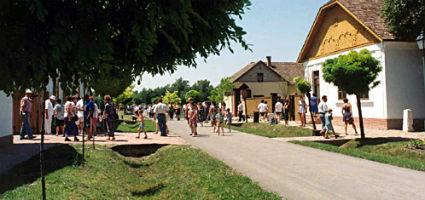2026. March 5. Thursday
Ópusztaszer National Historic Memorial Park - Ópusztaszer
 |
Address: 6767, Ópusztaszer Szoborkert 68.
Phone number: (62) 275-133 /103, (62) 275-133 /104
E-mail: info@opusztaszer.hu
Opening hours: 01.04-30-10.: Tue-Sun 10-18
01.11-30.03.: Tue-Sun 10-16 (Skanzen, external exhibiton closed) The current fare for those interested informed about the institution's website: www.opusztaszer.hu |
Anonymus - whose statue is seen in the memorial park - wrote the book Gesta Hungarorum, according to which the leaders of the Hungarian tribes camped in this region for 34 days in order to determine the inner order of the new country. That is why the general public think of this place as the scene of the first parliament of the settlers.
